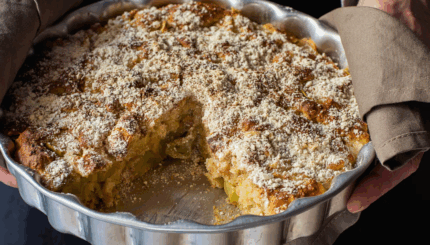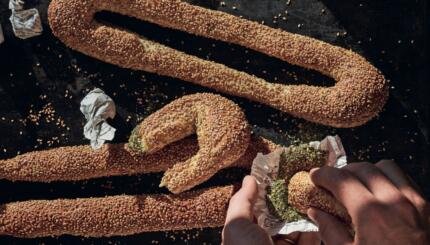I will never forget the moment when my daughter came out. She was 5 years old. We were eating dinner as a family. My daughter put down her fork, placed her hand on the table, looked at my husband and me, and said “Mommy, Abba, I’m not going to marry a woman.”
Our daughter had come out as straight.
My husband and I both felt that it was important not to make any assumptions about our kids’ sexual orientation, and to make a concerted effort to reflect that value in conversation. So when we spoke about marriage with our kids, we always said, “If you fall in love with a man or a woman and want to get married,” etc. Turns out that, at least at this point in our kids’ development, both our son and daughter identify as straight. But it could have been different, and we knew that from before they were conceived.
Last week, when I changed my Facebook profile picture to an equality sign made out of matzah, my daughter asked what that was all about. I explained that the United States Supreme Court was in the process of discussing marriage equality and Prop 8 — the same legislation that our family protested four years ago when we lived in California — and that the equality sign affirms that both gay and straight couples who love each other should be able to get married. Her response? “Well, of course.”
But the matzah equality picture actually reflects much more. At our Passover seders last week, Jews throughout the world said “In every generation, we each must see ourselves as if we personally left Egypt as part of the Exodus.” In other words, we are called upon to not simply understand the Israelites’ journey from slavery to freedom as the trajectory of our ancestors; rather, we must experience it as our own journey, allowing the story to seep into our very being and inspire us toward further action in our day. In every generation, we must remember our history — and we must use it as a catalyst, inspiring us to have the courage to move humankind to the next stage of liberation.
That next stage of human liberation is right in front of us. The matzah illustrates that this is not merely a secular issue: This is a Jewish issue as well. As a rabbi, my support for marriage equality is not in spite of my religious convictions; rather, it is because of my religious convictions that I stand strong on this issue. In every generation we must remember our oppression and we must work tirelessly to prevent the oppression of others. This is the Jewish way.
I have stood under a chuppah with many loving couples, creating a meaningful space for them to publicly celebrate their deep connection, transforming their partnership into a marriage. I long to live in a country that supports my ability as a rabbi to affirm the love of two consenting adults — whether gay or straight — who want to make a holy commitment to one another.
The word for marriage in Hebrew is kiddushin. Loosely translated as sanctification or holiness, kiddushin literally means separating, making distinct. From my experience working with couples, I can guarantee that each marriage is distinct. They each come with their own blessings and their own challenges. What they have in common is love. Commitment. A desire to spend a lifetime together. A dream of creating happiness with one another. A promise to hold each other up in difficult moments. A conviction to leave this world a little better than the couple found it. Each couple I have married truly believes that they live a more enriched, more meaningful life together than they ever would apart.
Is this kind of holiness limited to straight people? Of course not. It takes love, kindness, respect, a desire to support and build something greater than oneself, the courage to look inward and expand outward, a sense of humor and whole lot of work. Anybody who has a healthy marriage can tell you about that work. Because marriage is really hard. Why would we deny committed, holy love to courageous, determined people simply because of their gender?
My daughter may be straight, but even were she gay, my dedication to this issue would not stem from its impact on my own family. I am passionate about marriage equality because there are many, many people throughout these United States who are currently being denied simple rights that so many of us take for granted.
In every generation, we each must see ourselves as if we personally left Egypt as part of the Exodus.
It is time to mobilize, to part the seas and walk together to the promised land that the founders of our great nation dreamt into existence. It is time to help our nation become a place that is truly built on “liberty and justice for all.”
chuppah
Pronounced: KHOOP-uh or khoo-PAH, Origin: Hebrew, canopy under which a Jewish wedding ceremony takes place.



